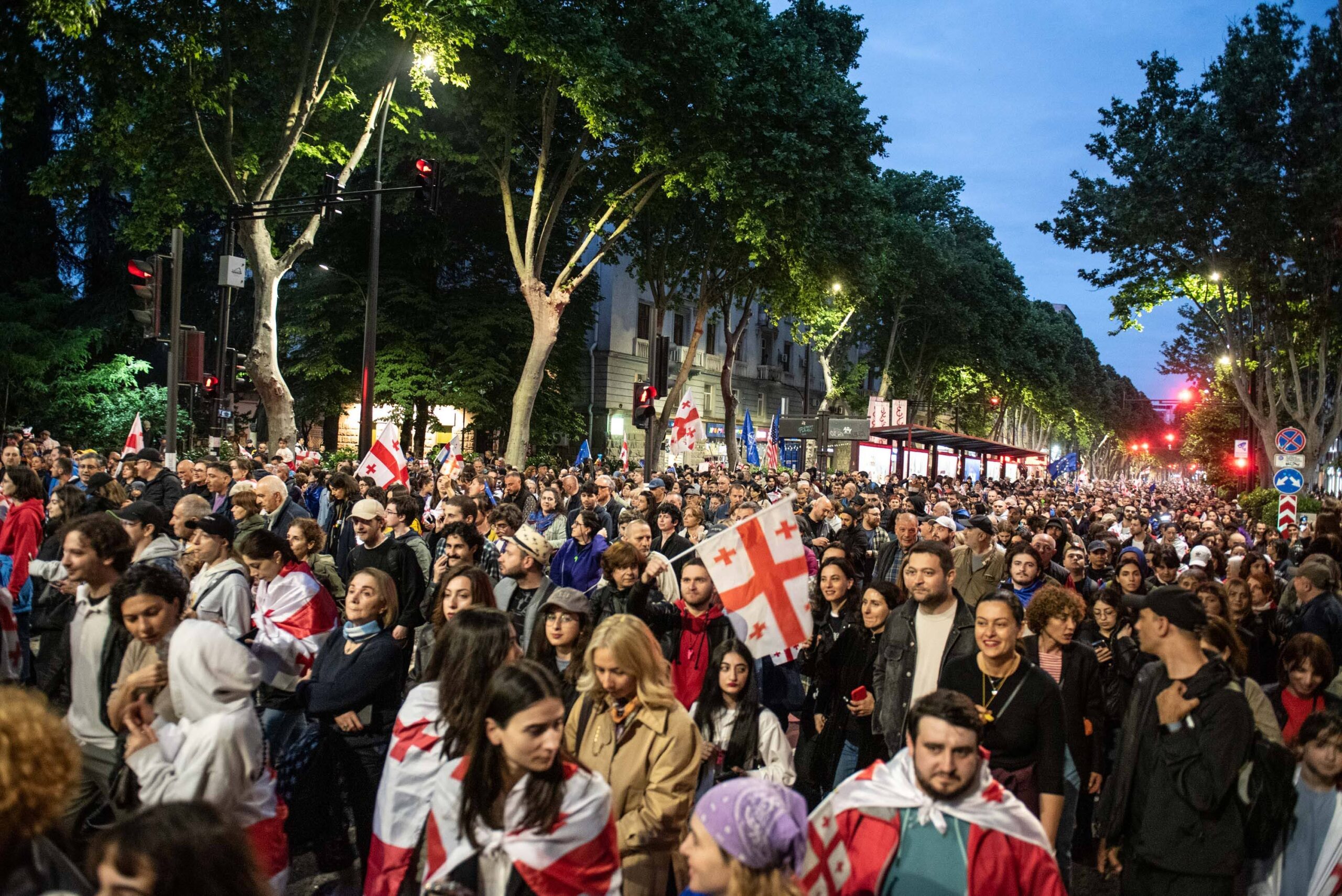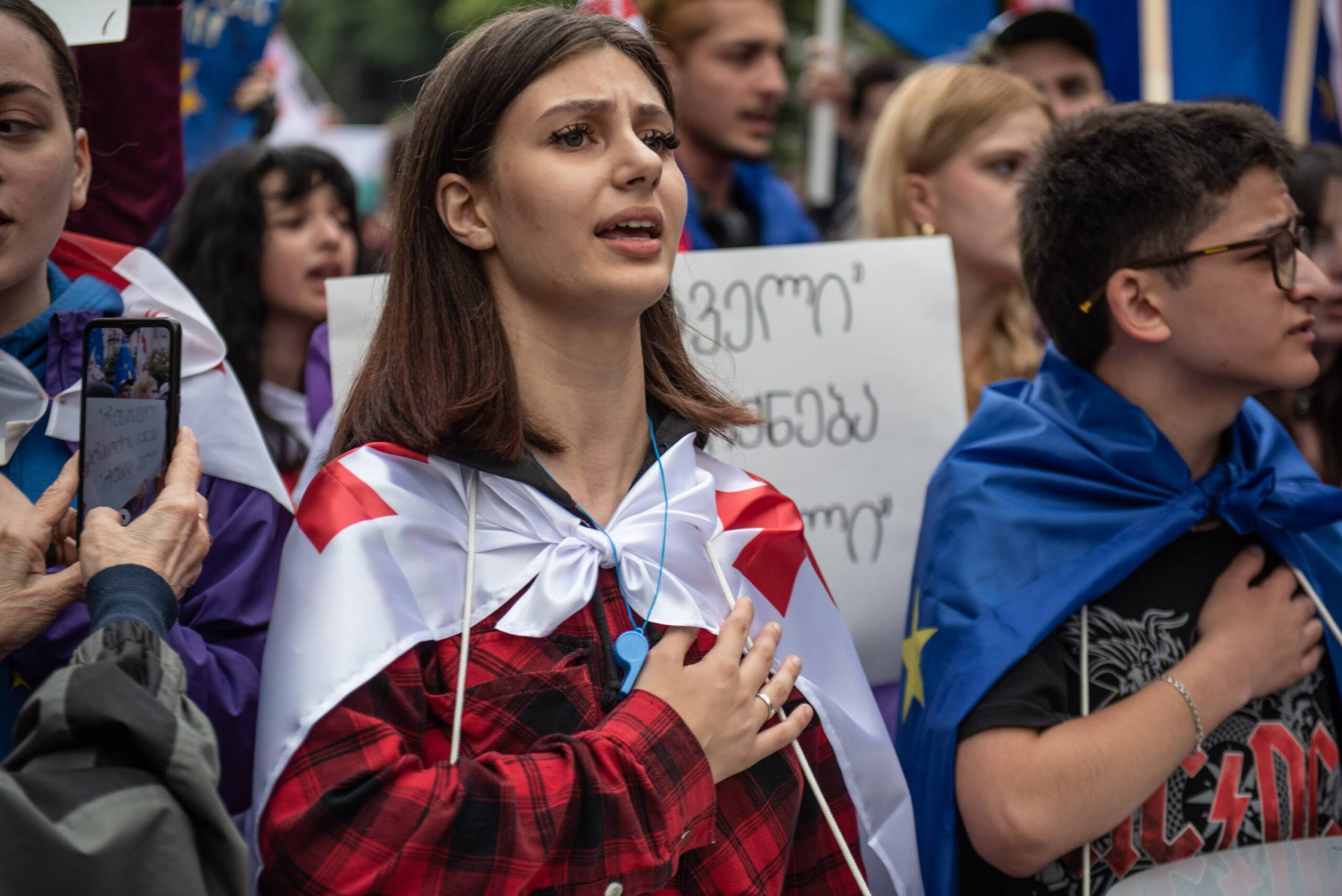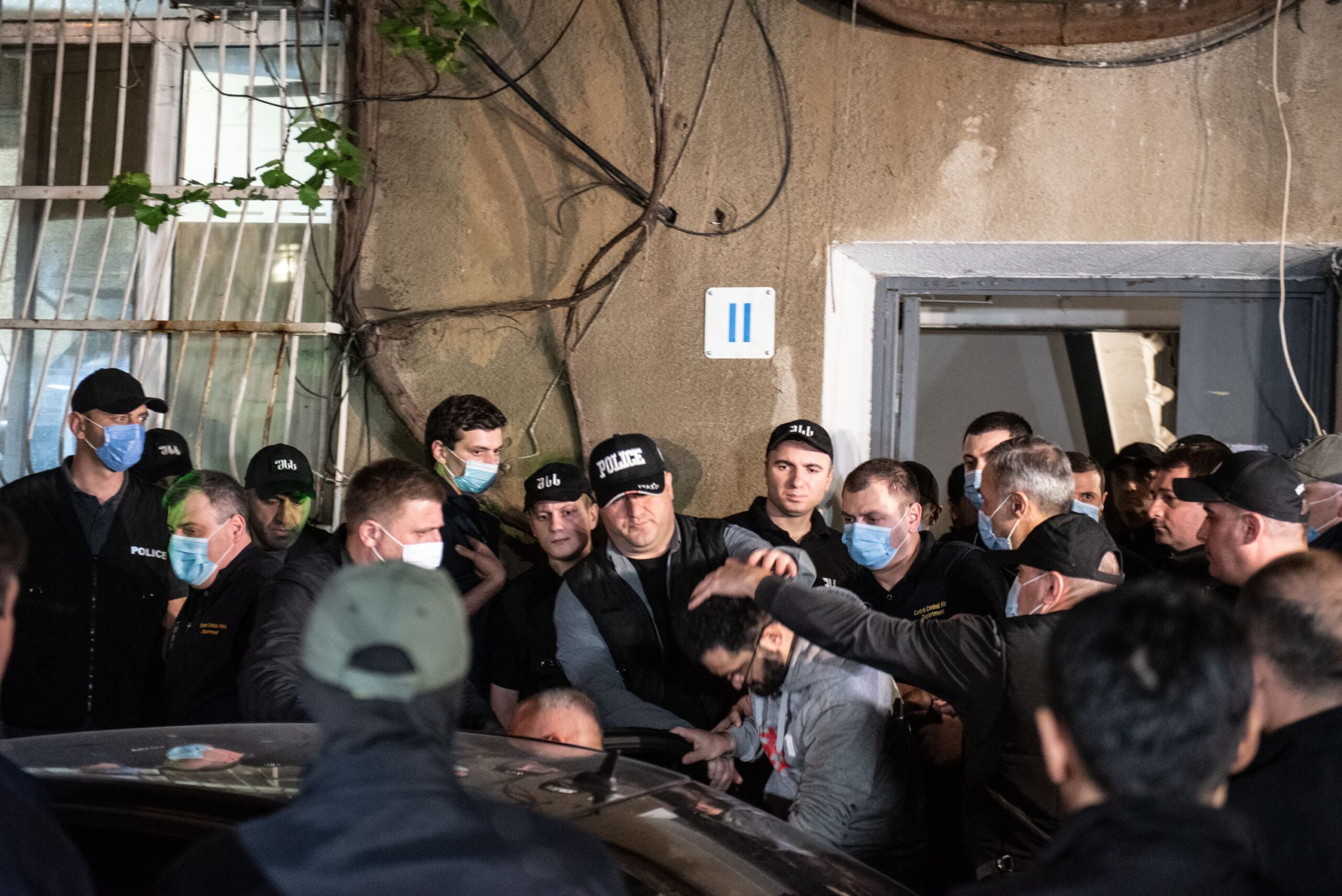President Zourabichvili outlines plan for temporary government following elections

Georgian President Salome Zourabichvili has invited opposition parties to sign a ‘Georgian Charter’ pledging to support the President’s nominations for a new, temporary government after the elections with the stated aim of carrying out pro-European reforms.
At an announcement outside the Orbeliani Palace marking Independence Day on Sunday, Zourabichvili said she would choose a government of ‘distinguished, selected, and professional members of society’, rather than politicians.
The president said the new government, to be formed after upcoming elections, would be ‘tasked with implementing a specific European plan’, after which new elections would be held in a ‘new, free environment’ in late 2025.
She said the charter did not entail a joint opposition electoral list. ‘Political parties should determine their own election tactics and strategies once they have signed the Charter — that matter is not mine’, she said.
Georgians are set to go to the polls on 26 October amidst rising anger at the ruling party’s authoritarian and anti-Western turn, including their passage of the controversial foreign agent law.
The move comes just days before Georgian Dream are expected to overcome the president’s veto of the law, despite mass protests and widespread Western condemnation, including the imposition of US sanctions on Georgian officials.


On Sunday evening, IPN reported that a number of opposition parties and figures vowed to sign the charter. These included the United National Movement, Lelo, Ahali, Girchi — More Freedom, Droa, European Georgia, as well as independent MP Khatia Dekanoidze from the parliamentary Europtimists group.
Georgian Dream’s parliamentary leader, Mamuka Mdinaradze, attacked the initiative on Sunday night. IPN cited him as saying it was not a ‘Georgian Charter’ but a ‘charter of local war’.
The ‘Georgian Charter’
Since Georgian Dream reintroduced the foreign agent law in April, a number of European officials have made clear that the law would preclude Georgia from joining the EU. The law threatens to stifle Georgia’s civil society and media.
The President said that autumn’s election would be a referendum on the country’s EU membership.
‘In these elections, we have to decide not who we vote for, but what we vote for! That is why these elections will, in reality, be a referendum — a referendum where we have to answer the following question: do we want Europe or not? And when we vote for any under-signatory party of this Charter, we are, in fact, voting for the “Georgian Charter” and, therefore, for a European future’, she said.
In addition to a promise to support the president’s choice of temporary government, the charter included a number of pledged reforms to be carried out before new elections would be held.
Signatories would promise to immediately repeal legislation passed by the ruling party that ‘contradict [Georgia’s] European path and European recommendations’. These included the foreign agent law, the offshore law, and more.
The charter also promised an amnesty for protesters against the foreign agent law.

It laid out a series of sweeping judicial reforms. Both local and international critics of the government have accused the ruling party of capturing the judiciary, supporting an influential ‘clan’ of judges who rule on politically sensitive cases.
It promises a ‘fundamental reform’ of the State Security Service and Ministry of Internal Affairs ‘in order to deconcentrate the power’.
‘Effective parliamentary control will be established over the activities of each institution, which will protect them from political influence’, the charter reads.

The charter also vows to strengthen the Special Investigation Service, which investigates police abuses, and the Anti-corruption Bureau, and make them more independent.
The charter vows to restore independence to the National Bank. Georgia’s central bank saw practically its entire upper management quit last year after new regulations were introduced to shield Georgian citizens from international sanctions.
The new government would also be tasked with creating ‘appropriate conditions [to] hold free and fair elections’.
‘We, the signatories of this charter, who will receive a mandate from the Georgian people in the 26 October 2024 elections, make a commitment and promise. That we meet the conditions set out in this Charter before the end of the very first spring session [of parliament] and that early parliamentary elections will be held in a free and fair manner upon execution’, it concludes.









